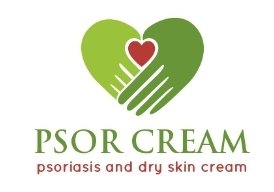
Psoriasis is a chronic autoimmune condition that affects the skin, causing red, itchy, and scaly patches to develop. While the exact cause of psoriasis is still unknown, several factors are believed to trigger or exacerbate the condition. Understanding these triggers can help individuals manage their symptoms and reduce flare-ups.
1. Genetics
Family history plays a significant role in the development of psoriasis. It is believed that certain genes are associated with an increased risk of developing the condition. However, having these genes does not guarantee that an individual will develop psoriasis. Other factors, such as environmental triggers, also come into play.
2. Immune System Dysfunction
Psoriasis is considered an autoimmune disease, which means that the immune system mistakenly attacks healthy cells in the body. In the case of psoriasis, the immune system accelerates the growth cycle of skin cells, leading to the formation of patches. It is still unclear why the immune system malfunctions in this way, but it is thought to be a combination of genetic and environmental factors.
3. Environmental Triggers
Certain environmental factors can trigger or worsen psoriasis symptoms in susceptible individuals. These triggers can vary from person to person, but common ones include:
- Stress: Emotional or physical stress can lead to flare-ups or worsen existing psoriasis symptoms.
- Infections: Bacterial or viral infections, such as strep throat or respiratory infections, can trigger psoriasis or cause it to worsen.
- Weather: Cold, dry weather can dry out the skin and trigger psoriasis symptoms.
- Injury: Skin injuries, such as cuts, scrapes, or sunburns, can lead to the development of psoriasis patches in the affected areas.
- Medications: Certain medications, such as beta-blockers, lithium, and antimalarial drugs, may trigger or worsen psoriasis symptoms.
- Smoking and Alcohol: Smoking and excessive alcohol consumption have been linked to an increased risk of developing psoriasis and worsening existing symptoms.
4. Lifestyle Factors
Several lifestyle factors can influence the severity of psoriasis symptoms. These include:
- Diet: Some individuals find that certain foods, such as dairy products, gluten, or processed foods, can trigger or worsen their psoriasis symptoms. It is important to pay attention to any dietary triggers and make appropriate adjustments.
- Obesity: Excess weight can increase the risk of developing psoriasis and make existing symptoms worse. Maintaining a healthy weight through regular exercise and a balanced diet can help manage the condition.
- Smoking: Smoking not only increases the risk of developing psoriasis but also makes the symptoms more severe. Quitting smoking can significantly improve psoriasis symptoms.
- Alcohol Consumption: Excessive alcohol consumption can trigger or worsen psoriasis symptoms. Limiting alcohol intake or avoiding it altogether can help manage the condition.
5. Hormonal Changes
Hormonal changes in women, particularly during puberty, pregnancy, and menopause, can influence the development or worsening of psoriasis symptoms. Fluctuating hormone levels may trigger flare-ups or make existing symptoms more severe.
6. Psychological Factors
Psychological factors, such as stress, anxiety, and depression, can have a significant impact on psoriasis. Stress can trigger flare-ups and worsen existing symptoms. It is important for individuals with psoriasis to manage their stress levels through relaxation techniques, counseling, or support groups.
While psoriasis triggers can vary from person to person, understanding these common factors can help individuals manage their condition more effectively. It is important to work closely with a healthcare professional to develop a personalized treatment plan that addresses both the symptoms and triggers of psoriasis.

